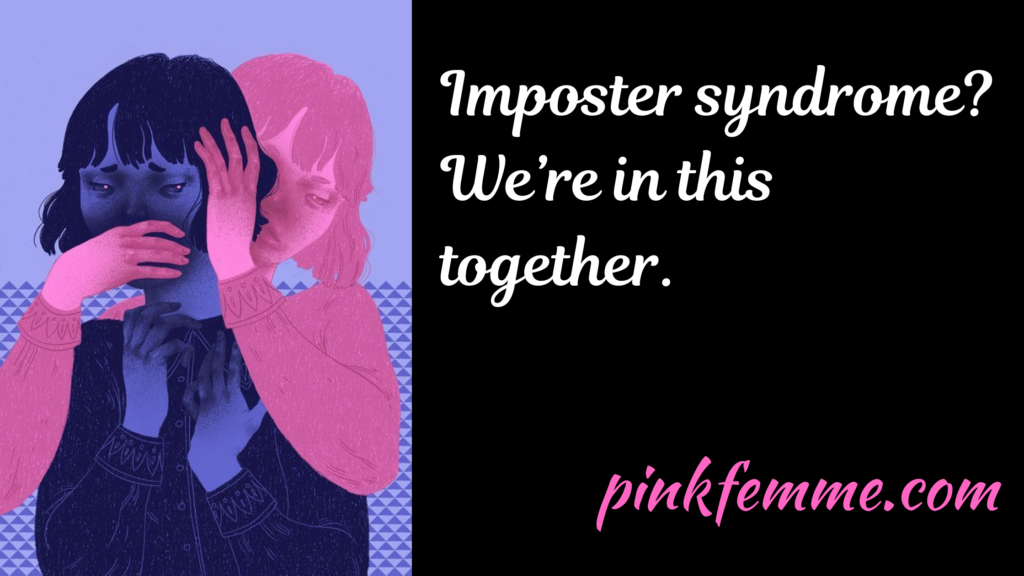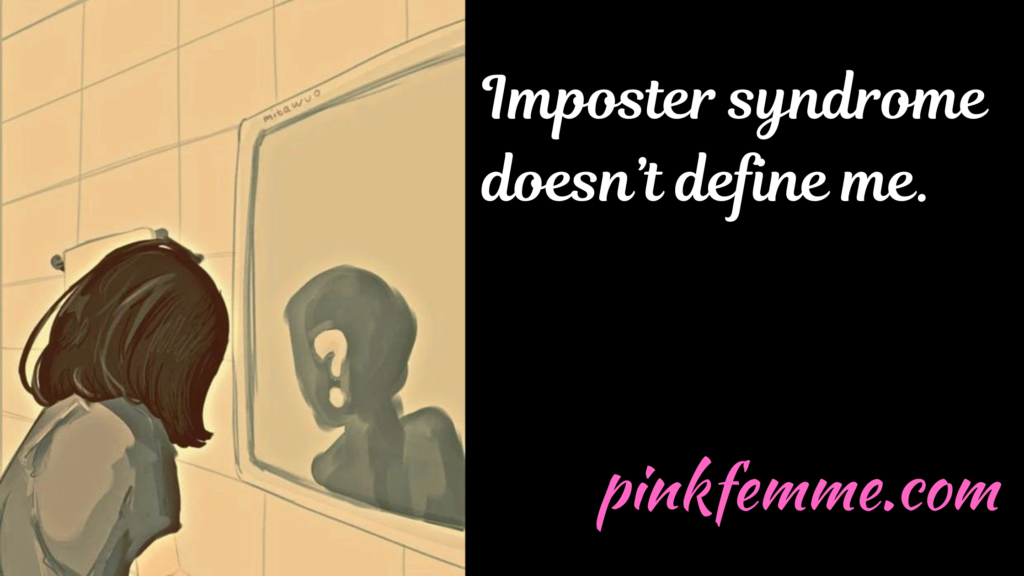
Imposter syndrome can feel like a relentless companion for many of us, constantly casting doubts on our worth, our achievements, and even our identities. When it intersects with the complexities of gender identity and expression, it can become even more intense. Living authentically often brings a renewed sense of joy and freedom, yet imposter syndrome seems to follow many on their journey, challenging their sense of belonging and identity. In this article, I want to explore what imposter syndrome is, why it’s so prevalent in relation to gender, and the factors that cause it to resurface even after we believe we’ve overcome it.
Understanding Imposter Syndrome and Gender Identity
For those unfamiliar with imposter syndrome as it relates to gender identity, let’s start with a quick explanation. Imposter syndrome is that nagging feeling that you’re “faking it,” that people around you will somehow see through your act, and that you don’t truly belong in the life or identity you’re presenting to the world. For many, this feeling surfaces during major life changes or moments of personal growth, but for those navigating gender identity, it can become a regular and persistent presence.
If you’ve ever felt like you’re “pretending” to be the gender that reflects your authentic self, you’re not alone. This feeling can arise at any stage in the journey, whether you’re just beginning to understand your gender identity or have completed a full transition. Imposter syndrome in this context can persist, no matter how long you’ve lived as your authentic self. It’s a constant whisper that questions whether you have the “right” to inhabit your own identity.
The Role of “Passing” and Its Effect on Self-Perception
A crucial concept in the world of gender identity is “passing privilege,” which refers to the ability to go out into the world and be recognized as your true gender without others questioning it. Many might assume that achieving passing privilege would lead to relief from imposter syndrome, but in reality, it often exacerbates it. When people no longer question your gender, it can feel as though you’re not only “fooling” them but that you also need to keep proving yourself, even if only to yourself.
The deeper issue here is that imposter syndrome doesn’t disappear just because the world perceives you as your authentic self. If anything, the internal sense of not quite belonging can heighten. You might feel as if you’re “trespassing” in spaces or communities that were previously inaccessible, all while grappling with a profound need for self-acceptance.
The Persistence of Imposter Syndrome
Imposter syndrome isn’t a mental health condition in itself, and it’s incredibly common. I haven’t met anyone, within or outside the gender therapy community, who hasn’t felt like an imposter at some point. However, the way imposter syndrome manifests can differ depending on what you’re struggling with. While others may feel imposter syndrome in their careers or relationships, those of us exploring and living within our true gender identities might find it arising from the very act of being ourselves. Stepping into this truth can feel both exhilarating and daunting, particularly if you’ve spent a long time feeling disconnected from your authentic self.

Even though we may wish for imposter syndrome to disappear over time, there are inevitable relapses. These moments often come when we’re faced with significant challenges to our confidence or sense of self. So, let’s explore the factors that make imposter syndrome resurface even when we think we’ve left it behind.
Factor 1: External Changes to the Environment
External factors—elements of our environment that we cannot control—play a major role in triggering imposter syndrome. For instance, dealing with transphobia, discrimination, or a politically hostile climate can bring up deep-rooted insecurities. When faced with societal messages that suggest you don’t belong, it’s natural for feelings of imposter syndrome to intensify. These experiences can make you feel like an outsider or “trespasser” in a world that doesn’t feel fully designed for your authentic self.
When we’re constantly met with reminders of exclusion or are confronted by bias, it can be challenging to feel secure in our own identity. Even though these external factors don’t define who we are, they have a powerful impact on our internal sense of self-worth.
Factor 2: Life Transitions
Life changes, big or small, have a way of surfacing imposter syndrome. Major transitions like moving to a new city, starting a new job, or entering a new relationship can trigger those old doubts. These events would be challenging under any circumstances, but they can feel even more overwhelming when you’re navigating them within a new gender identity. The last time you might have gone through a similar life transition, it was in a different gender expression; now, it’s a new chapter but with an entirely new context.
The emotional impact of navigating these changes while also aligning with your true self can bring up intense feelings of imposter syndrome. The comfort and stability you may have felt in the past are now replaced by uncertainty as you approach these transitions from an unfamiliar place, which can feel both isolating and intimidating.
Factor 3: Internal Shifts
Lastly, imposter syndrome can be triggered by internal changes. As we grow and develop, particularly through therapy or personal introspection, our self-perception evolves. Working through insecurities, building self-worth, and reshaping a sense of self can be both liberating and unsettling. Sometimes, as we grow, we leave our older, familiar selves behind, and this can cause a temporary disconnect from our new, authentic self. It’s not uncommon for people post-transition to seek additional support from a gender therapist because these feelings often resurface during times of personal growth.
In these moments, it’s important to remember that growth is natural. Just because you feel a sense of imposter syndrome again doesn’t mean you aren’t on the right path. Therapy and self-reflection can help reconnect with your authentic self, but this is an ongoing journey that requires patience and kindness toward oneself.
Moving Forward with Self-Compassion
Imposter syndrome is a complex, deeply ingrained feeling, but it’s important to remember that it’s not a flaw. It’s a natural response to the challenges we face, especially when stepping into new, vulnerable spaces. While there isn’t a “cure” for imposter syndrome, building self-confidence and a solid sense of self-worth can help you navigate its reappearances with greater ease.

I hope this exploration sheds light on why imposter syndrome often persists, especially in relation to gender identity, and how normal it is to feel this way. The journey to self-acceptance is not a straight path, and relapses are part of the process. Remember that you are not alone in this experience; everyone feels like an imposter in some aspect of their lives at some point. Learning to cope with these feelings—and to move forward despite them—is what ultimately helps us build resilience. If you have more thoughts or experiences to share, I would love to hear from you in the comments below.
If you are looking for more lifestyle-related posts here on Pink Femme, you can find them all here.
Keep up to date with all my latest femme news with the fabulous Pink Femme Newsletter. Each Monday you’ll receive an email from me that will include a chapter from the novel that I am currently writing. I will also alert you to interesting information from articles that have not yet been published on Pink Femme. The Pink Femme Newsletter is the only place to see chapters from the novels before they are published. Sign up today: PINK FEMME NEWSLETTER.
